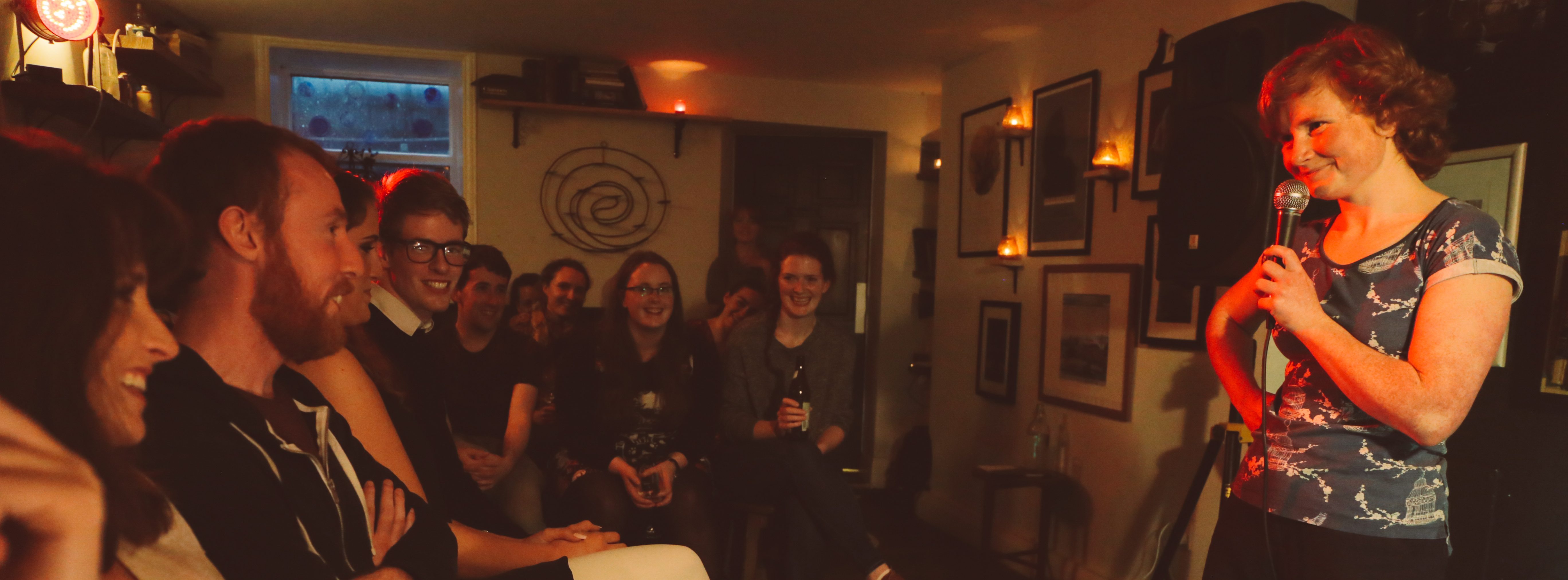Sometimes, science can feel like a joke. Experiments don’t work, simulations produce physically impossible outcomes, and a question that you thought would take two weeks to answer instead can take two years. All too often we hide the messiness of science, presenting progress as linear rather than admitting the missteps and follies along the way. But surprises and setbacks shape the story of science as a human endeavor, and if we are unwilling to share this side of science, to laugh at ourselves, we risk alienating society from science altogether.
You might be thinking, but science isn’t funny, it’s an important and serious business! In my view, that is exactly why we should find the humour in it. Scientific progress saves lives, and technological advances improve quality of life across the globe. This means that public understanding of and participation in science has never been more important, especially as scientific issues such as climate change and energy usage increasingly impact politics and people worldwide. Research in education tells us that playful approaches to learning information can actually aid in retention and understanding, so educators now encourage learners to generate their own content on a topic – to be able to tell a story. Or write a joke.

What is a joke, after all, but a surprising reversal, a change in viewpoint that completely reframes the information that came before? These sorts of reversals happen in science all the time, and scientists are used to having their viewpoints upended by new data. In fact, many of the skills that are important in science are also important in writing comedy: creativity, a willingness to upend the status quo, and indeed a subversive approach to authority in pursuit of a deeper truth. But more importantly, consider the audience. When a person listens to a joke, they are waiting for the other shoe to drop and the punchline to be revealed: they are waiting to change their mind. In this era of polarized news and information bubbles, what other approach to communication of complex ideas could possibly be more powerful than comedy?
It is this ethos that underlies Bright Club, a series of variety nights combining academic research and stand-up comedy. I have run Bright Club events in Ireland since 2015, training researchers from science, social science, and humanities and bringing them together with comedians and musicians for thought-provoking shows. The Bright Club format itself was pioneered in the UK by Steve Cross in 2009, and Bright Club events now take place in many European countries. Before each event, academics are trained in stand-up comedy techniques, a skill set which they often find useful in teaching and other science communication events.
In the 60+ events our Bright Club team has held in Ireland, which take place in informal spaces from pubs to music and comedy festivals, we have found an audience which is diverse and excited to hear from academics who reject the notion of the ivory tower. The talks are always engaging and the interdisciplinary nature of the events helps connect science to the broader constellation of human knowledge, drawing in people from all walks of life. We’ve also found that speakers who take part in Bright Club find comedy empowering: not only does it help them to communicate more accessibly, without jargon, but it helps them to communicate authentically, to find their own voices and their own unique perspectives on their own research. Participation in public engagement events like Bright Club often leads to a strengthened sense of agency and scientific identity, but the use of humour adds an extra level to this by allowing researchers to connect their professional selves to their personal selves. Audiences see researchers in their full humanity, and researchers often report that Bright Club is the first time they have felt that this humanity could be part of their work.

Science affects all of society, and hence it is of critical importance to bring researchers into public spaces to engage the public with what they do. Comedy is an invaluable tool for engagement, not least because the audience response adds the element of dialogue. Researchers report that the laughter and comments from the audience, as well as the process of writing jokes and reflecting on their own work, gave them new ideas and perspective on their research. And audiences reported great joy in hearing academic research presented so engagingly, in a fun setting, with a mix of different topics. Facts don’t speak for themselves – they need ambassadors. So isn’t it time we all started taking ourselves a bit less seriously?

